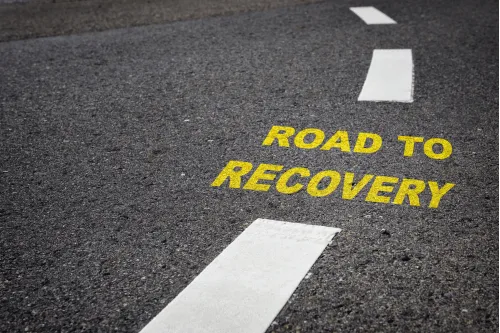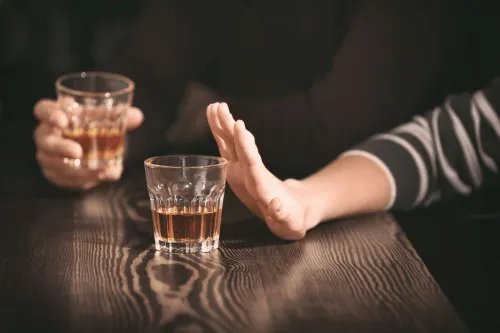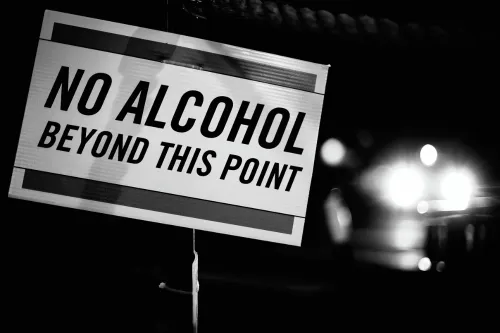
Active recovery is a key concept in addiction treatment, but many people wonder, what is active recovery alcohol and how does it work in real life? In simple terms, active recovery alcohol treatment focuses on consistent engagement in healthy habits, therapy, and self-care practices after detox or rehab. Instead of viewing recovery as a passive process, it encourages patients to take an active role in improving mental health, building coping skills, and maintaining long-term sobriety.
At Sullivan Recovery in Mission Viejo, active recovery is part of every stage of treatment. Through therapy, medication, and lifestyle support, patients learn how to manage triggers, strengthen their behavior patterns, and reduce relapse risk.
To understand what is active recovery alcohol, it helps to compare it to traditional rest or passive recovery. In passive recovery, the goal is often to rest the body and mind after substance use. Active recovery, however, combines movement, therapy, and mindfulness to restore balance in the brain and body.
Active recovery includes daily habits such as physical activity, stress management, and participation in therapy sessions. These actions strengthen mental health and reduce the urge to return to alcohol or drug use. Programs like those at Sullivan Recovery teach patients how to apply these methods at home and in outpatient settings.
Alcohol and other substances change how the brain functions by disrupting neurotransmitters responsible for mood and motivation. During active recovery, the brain slowly rebuilds normal chemical balance through healthy behavior, sleep, and nutrition.
Physical activity increases endorphins and helps restore dopamine levels that were depleted during addiction. Combined with therapy and medication support, this approach promotes better overall health and improves mental focus. Active recovery gives the brain time to heal while providing structure and accountability through daily routines.

Therapy plays an essential role in active recovery alcohol treatment. Licensed clinicians use evidence-based methods like dialectical behavior therapy (DBT) to address emotional regulation, impulsivity, and destructive thought patterns.
DBT helps patients manage anxiety, stress, and substance-related cravings. It also strengthens coping skills and improves relationships damaged by alcohol or drug use. At Sullivan Recovery, therapy sessions are structured to support both individual growth and group connection, creating a safe environment for open discussion.
Addiction rarely happens alone. Many people living with alcohol or drug addiction also face mental health conditions such as anxiety, depression, or trauma. This overlap is called a dual diagnosis.
Active recovery programs must address both issues at once. Ignoring mental health can lead to relapse even after physical detox. Sullivan Recovery provides integrated therapy that targets both the substance abuse disorder and the underlying emotional challenges. By doing so, patients build stronger mental resilience and long-term sobriety.
While this blog focuses on alcohol, active recovery also applies to opioid addiction. Both alcohol and opioid dependence affect the reward system of the brain, leading to cravings and compulsive use.
Outpatient rehab programs often include medication to ease withdrawal symptoms and reduce cravings for drugs or alcohol. Active recovery builds on that by adding therapy, physical movement, and daily structure to strengthen health and prevent relapse. Whether someone struggles with alcohol, opioids, or both, the same core principle applies — healing requires consistent action and participation in treatment.
Recovery is as much about behavior as it is about physical detox. Changing destructive patterns requires time, guidance, and practice. Active recovery teaches positive behavior reinforcement, helping patients replace old habits with healthier alternatives.
Coping skills are central to this process. Patients learn how to manage stress, build emotional awareness, and set boundaries. By focusing on coping techniques, individuals gain tools to handle daily challenges without turning back to alcohol or drugs. Sullivan Recovery’s therapy programs emphasize mindfulness, behavioral awareness, and long-term emotional control.

Relapse is one of the most common concerns in addiction recovery. Many people complete detox or rehab but struggle to maintain sobriety afterward. Active recovery alcohol strategies reduce relapse risk by keeping patients engaged in therapy, wellness, and personal development.
Sullivan Recovery’s outpatient programs are built around relapse prevention. Clients participate in ongoing sessions, accountability check-ins, and lifestyle coaching. These tools promote consistent progress and help individuals identify early signs of relapse before it happens.
Addiction is more than a disease of the mind — it impacts every part of the body. Chronic alcohol or drug use weakens the immune system, increases blood pressure, and harms the liver. Active recovery supports health restoration by promoting movement, hydration, nutrition, and rest.
Sullivan Recovery’s outpatient programs emphasize holistic care. Patients receive guidance on improving their physical condition through exercise, balanced eating, and regular therapy. These steps help the body heal while supporting mental clarity and stability.
When addiction overlaps with depression, PTSD, or other disorders, recovery becomes more complex. This is where dual diagnosis treatment is vital. Sullivan Recovery combines addiction therapy with mental health care, ensuring both conditions are treated at the same time.
Active recovery supports this model by addressing emotional behavior and biological healing together. Patients benefit from therapy that targets mental distress while also improving physical health through daily self-care and structured routines.
Medication can be an important part of active recovery alcohol programs, especially during the early stages of treatment. Certain FDA-approved medications reduce alcohol cravings, stabilize mood, and protect brain chemistry.
These medications work best when combined with therapy and lifestyle change. At Sullivan Recovery, clinicians carefully assess each patient’s needs to determine whether medication-assisted treatment will support sobriety. This combined approach promotes long-term healing and safety.
Understanding mental health is essential for anyone recovering from addiction. Alcohol and drug use often mask or worsen underlying emotional issues like anxiety and depression. Through therapy, patients learn to recognize how their emotions influence substance use.
Active recovery encourages self-awareness and reflection. It helps individuals build a stronger connection between their thoughts, feelings, and actions. With support from licensed professionals, patients develop emotional stability and learn to manage stress without alcohol or drugs.

At Sullivan Recovery in Mission Viejo, active recovery is a central part of our outpatient rehab model. We help patients stay accountable, active, and engaged in daily life while addressing the root causes of substance abuse.
Our clinicians use evidence-based therapies such as dialectical behavior therapy, medication management, and relapse prevention planning. Each program is customized to meet the unique mental health and physical health needs of the individual. This structure ensures lasting sobriety and improved well-being.
Support systems are crucial for long-term recovery. Active recovery encourages connection with peers, family, and mentors who understand the challenges of addiction. Group therapy and sober activities help rebuild trust and motivation.
At Sullivan Recovery, group sessions allow patients to share experiences, offer support, and hold each other accountable. This environment fosters belonging and reduces isolation, both key factors in preventing relapse.
Anxiety is a common symptom during early sobriety. Without alcohol or drugs, the nervous system takes time to stabilize. Active recovery focuses on reducing stress through therapy, breathing exercises, and routine structure.
Sullivan Recovery teaches practical coping skills for managing anxiety and preventing emotional relapse. Techniques like journaling, mindfulness, and progressive relaxation can help patients maintain calm and focus during recovery.
Addiction rewires the brain, changing how reward, motivation, and decision-making systems work. Active recovery helps reverse this process by promoting neuroplasticity — the brain’s ability to form new, healthy connections.
Therapy, physical movement, and balanced routines all contribute to this healing process. Over time, individuals in active recovery regain control of their choices and develop confidence in sobriety. Sullivan Recovery supports this transformation through personalized care and ongoing guidance.

Rehab is the first step in a lifelong journey. Detox helps clear substances from the body, but active recovery builds the foundation for lasting change. The lessons learned in outpatient rehab extend into daily life, where patients apply coping skills and maintain self-awareness.
Sullivan Recovery encourages every patient to continue therapy, participate in community programs, and seek healthy outlets for stress. These long-term commitments prevent relapse and support continued growth.
Long-term sobriety is built through daily action. Active recovery alcohol programs promote consistency, mindfulness, and accountability. Over time, these habits create a strong foundation for mental, emotional, and physical health.
At Sullivan Recovery, patients are guided through every stage — from detox to therapy to reintegration into daily life. Our team ensures that each person has the tools, education, and confidence to live a fulfilling, sober life.
Understanding what is active recovery alcohol helps individuals see that healing is a continuous process, not a one-time event. Recovery requires effort, awareness, and consistent care for both mind and body.
Sullivan Recovery’s outpatient programs in Mission Viejo offer the structure, therapy, and support needed to achieve lasting sobriety. Whether facing alcohol, drug, or opioid addiction, active recovery empowers individuals to rebuild their health, strengthen their behavior, and reclaim their lives.
Contact Sullivan Recovery today to learn more about our personalized outpatient programs and how we can support your path to lasting sobriety.